I-Pill Tablet Complete Information
I-Pill Tablet is used as an emergency contraceptive tablet to prevent unwanted pregnancy in case of unprotected sex or contraception failure. The emergency contraceptive pill should be taken within 24-72 hours of having unprotected sex. The pill should be taken orally. Also, the sooner you take the pill, the better it is because as time passes by, the pill becomes less effective.
This tablet contains levonorgestrel as an active ingredient. When the active compound gets into the bloodstream, it blocks the formation of hormones such as luteinizing hormone (LH) and follicle-stimulating hormone (FSH). These hormones are responsible for the development and release of eggs from the ovaries (ovulation). Hence, depending upon your reproductive cycle, the emergency pill works by delaying the process of ovulation. However, in case the ovary has already released the egg, the tablet works by disrupting the fertilization of the egg with the sperm. In case the fertilization has already occurred, it prevents the pregnancy by hindering the implantation (attachment) process in the uterus.
However, what most women need to know is the fact that the morning-after pill is not a primary form of birth control and should only be used in the case of an emergency.It is usually safe if taken in a responsible manner but can lead to certain side effects such as nausea, fatigue, and stomach cramps.
Key uses/benefits of i-pill Tablet:
- Is used as emergency contraception, hence helps in avoiding unwanted pregnancy
- Provides a safe and effective way to prevent an unintended pregnancy after unprotected sex or contraceptive failure
Direction for use:
Take one pill as soon as possible, but no later than 72 hours of unprotected sex to prevent unwanted pregnancy.
Quick tips of i-pill Tablet:
- This tablet works as an emergency birth control pill that has a strong dose of hormones. So, do not use it on a regular basis and use it only for emergency purposes.
- As an i-pill Tablet is an emergency contraceptive pill, you should not mistake it for regular oral contraceptive pills or abortion pills.
- If you do not get your periods within three weeks after using this medicine, it is wise to do a pregnancy test to make sure you are not pregnant.
- Do not take this pill if you are allergic to it. Talk to your doctor for other effective contraceptive pills that you can take.
- If you vomit within three hours of taking this pill, then take another pill as soon as possible.
- These pills are not 100% effective in the prevention of pregnancy.
- These pills do not work if pregnancy has already occurred.
- Emergency pills do not protect against the risk of sexually transmitted diseases like HIV.
Side effects of i-pill Tablet:
This tablet is usually safe if taken in a responsible manner. However, there may be some side effects such as:
- Nausea
- Fatigue
- Headache
- Stomach cramps
- Menstrual irregularities
Most of these side effects occur because of the high dose of hormones present in the pill.
Storage and safety information:
- Do not exceed the recommended dose.
- Read the instruction leaflet/label carefully before use.
- Store in a cool place and protected from light and moisture.
- Keep out of the reach and sight of children.
- Use under medical supervision.
FAQs
Q. Does i-pill Tablet affect future pregnancy?
It is one of the most common questions that bother women taking an emergency contraceptive pill. It doesn’t affect your chances of getting pregnant in the future.
Q. Is it safe to take an i-pill?
It is safe if taken in a cautious and responsible manner. However, there may be some side effects such as nausea, fatigue, headache, and stomach cramps due to hormonal imbalance.
Q. When is it appropriate to take an i-pill Tablet?
You should take it only in emergency situations such as unprotected sex, contraceptive failure (e.g. broken condom), or irregular use of your birth control pills.
Q. How should I take an i-pill Tablet?
Take one tablet as a whole with water. Take it as soon as possible, not later than 72 hours of unprotected sex or contraceptive failure.
When do you take a contraceptive pill?
- The emergency pill can only be used by women between 25 and 45 years of age. It is not the safest approach to be followed by adolescents. With the rise in the rate of teenage pregnancy in India, schools and colleges need to consider launching a campaign for sex education and educating young people about the harmful effects of contraceptive pills on a reproductive system that is growing. These contraceptive pills are hormonal pills and their use for a prolonged period of time will lead to serious menstrual problems and ovarian harm.Emergency pills can lower the libido level, according to ISARC researchers; some women even delay periods due to skin allergies. Several women complain of serious headaches caused by hormonal imbalance.
Important tips
- This tablet acts like a pill that has a high dose of hormones for emergency birth control. So, do not routinely use it and use it for emergency purposes only.
- You should not confuse it for standard oral contraceptive pills or abortion pills, since an i-pill is an emergency contraceptive pill.
- It is wise to do a pregnancy test to ensure that you are not pregnant if you do not get your periods within three weeks of taking this drug.
- If you are allergic to it, do not take this pill. For other important contraceptive pills that you should take, speak to your doctor.
- Take another pill as soon as possible if you vomit within three hours of taking this pill. This is because vomiting does not make the body absorb the components of the drug, which can render the pill ineffective.
- In pregnancy prevention, these pills are not 100 percent effective.
- These pills do not work if there has already been a pregnancy.
- Emergency pills do not safeguard against the possibility of HIV-like sexually transmitted diseases.

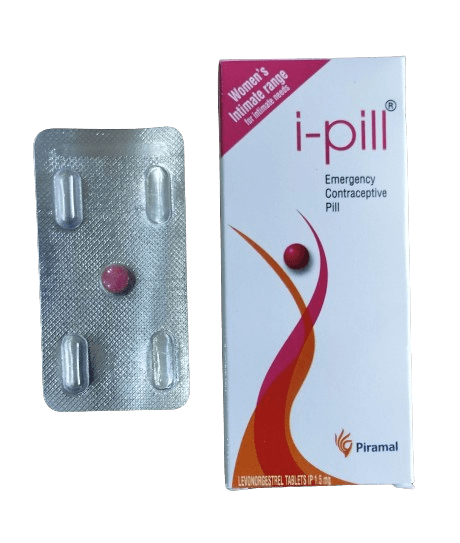
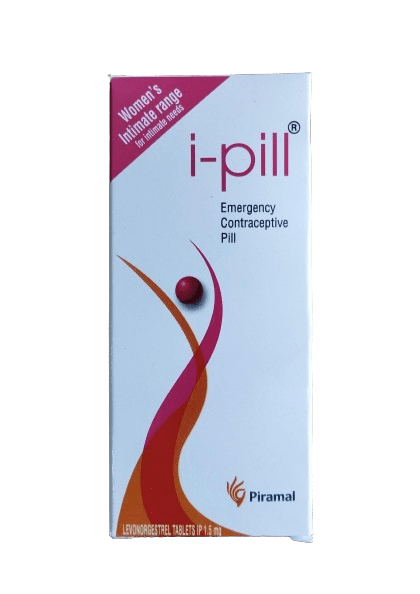
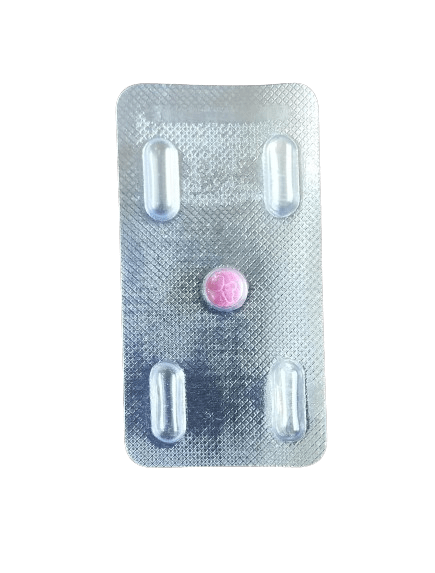
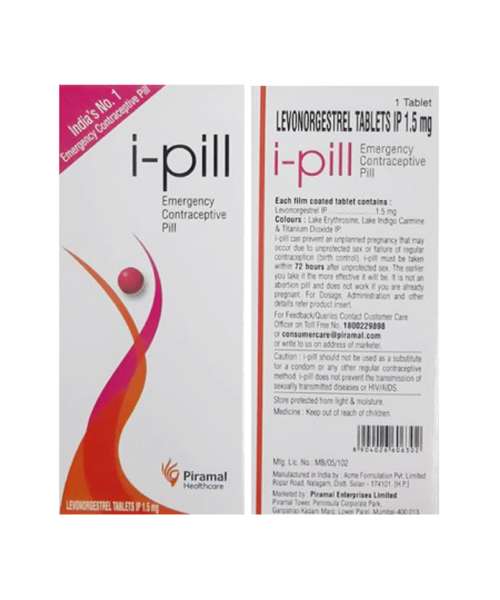
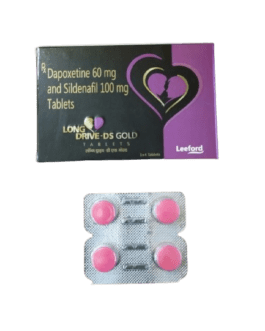
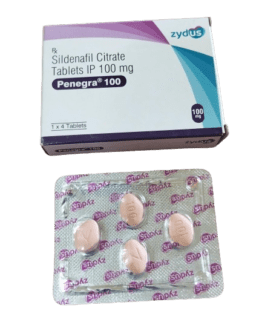


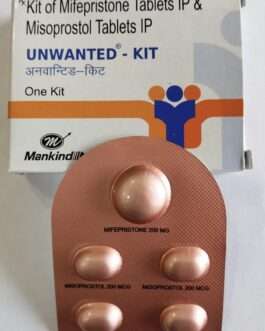

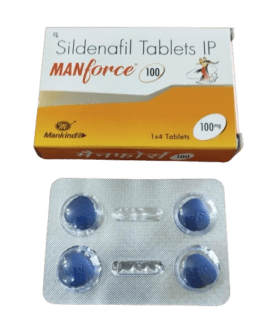
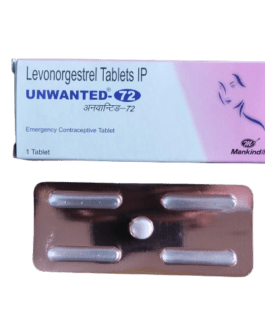
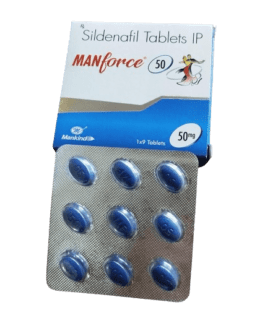
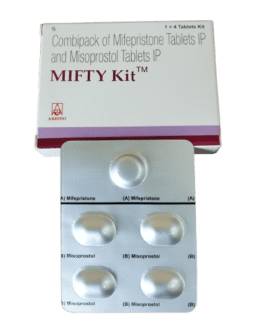

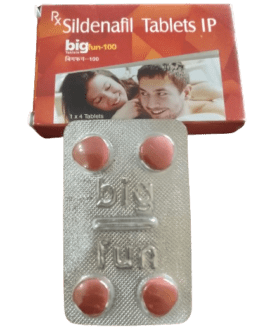
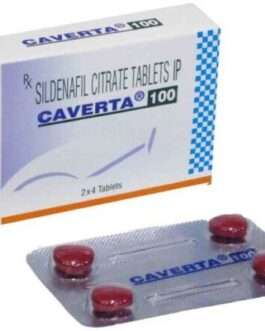
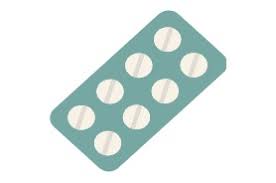



Reviews
There are no reviews yet.